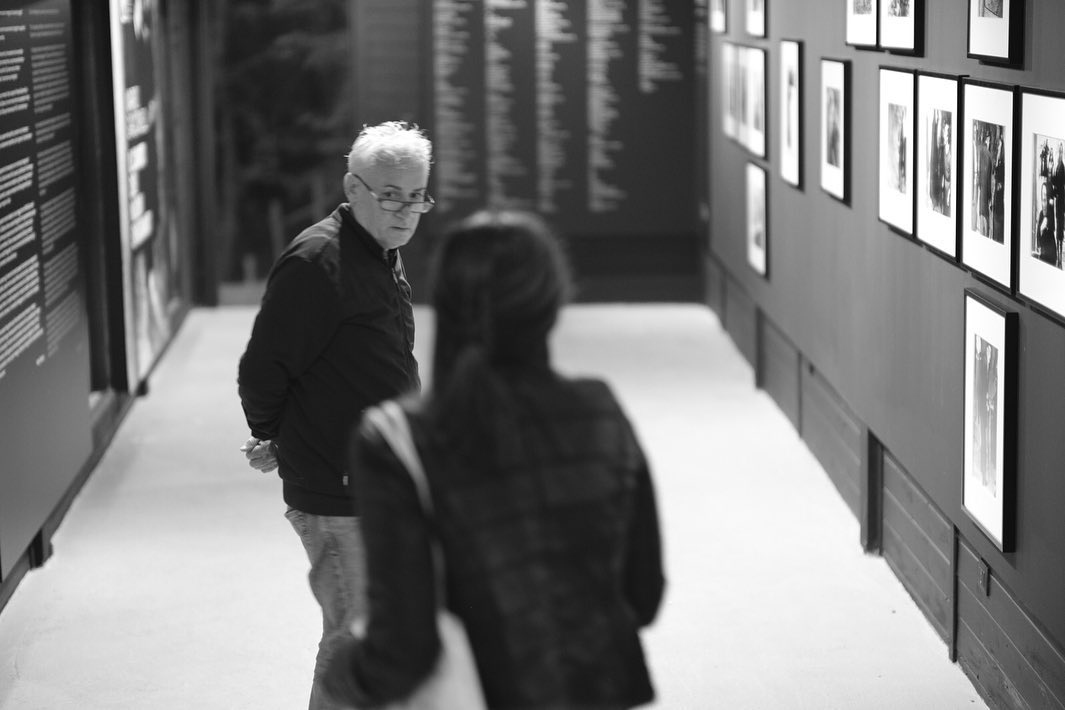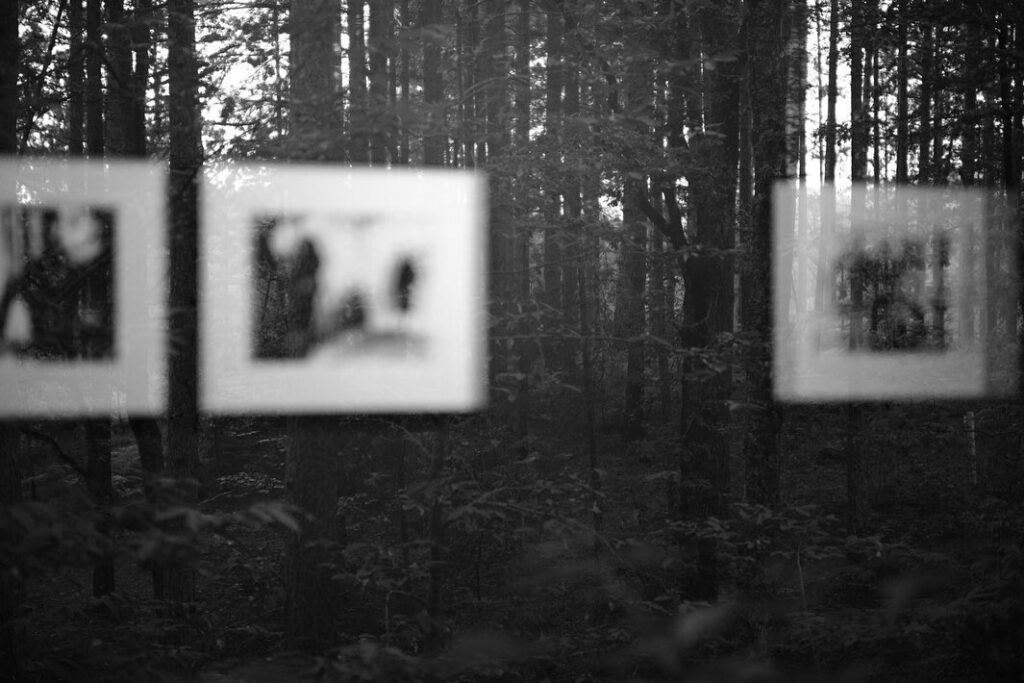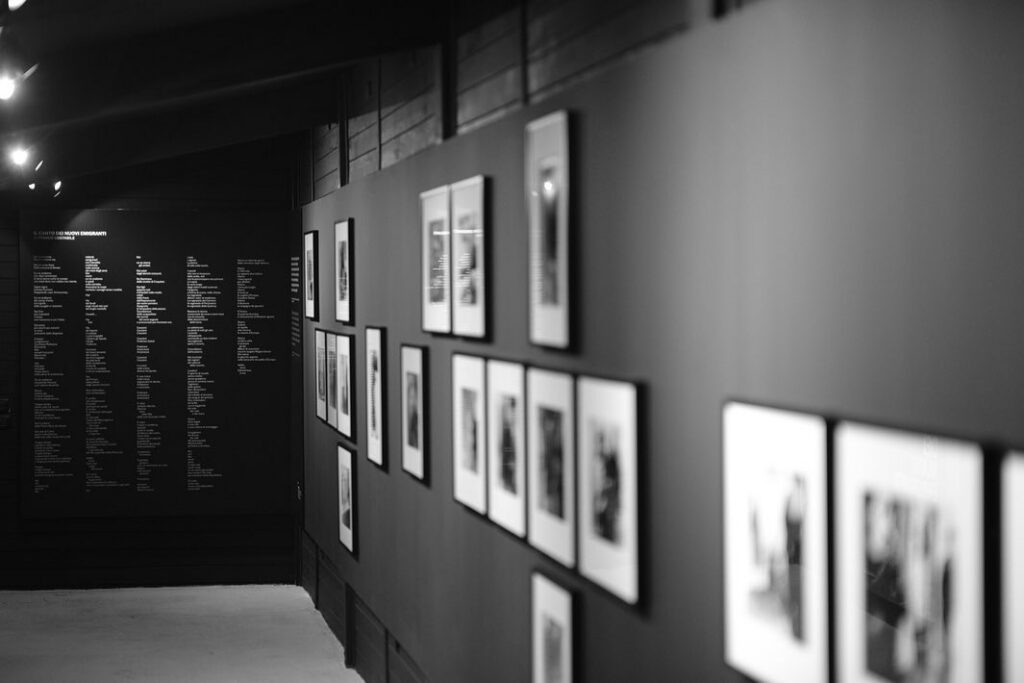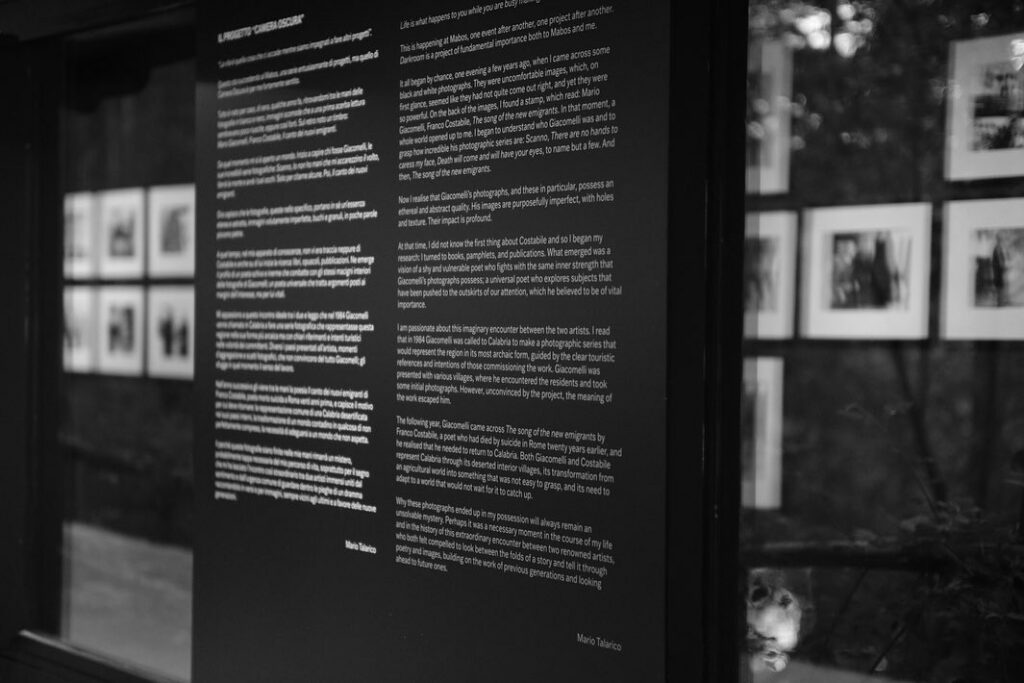
Life is what happens to us while we are busy making other plans.
Life is what happens to us while we are busy making other plans. This is happening at MABOS, one meeting after another, one project after another. Camera Oscura is a project that is profoundly important for both the MABOS and me. It all started by chance, one evening a few years ago, when I found myself holding some black and white photographs—uncomfortable images that, at a first immature glance, seemed poorly done, yet were so powerful. On the back, I found a stamp: Mario Giacomelli, Franco Costabile, Il canto dei nuovi emigranti. From that moment, a world opened up to me. I began to understand who Giacomelli was, his incredible photographic series: Scanno, Io non ho mani che mi accarezzino il volto, Verrà la morte e avrà i tuoi occhi, to name a few. Then, Il canto dei nuovi emigranti. I now understand that these photographs, specifically these, carry an ethereal and abstract essence—deliberately imperfect images, holes and grains, in short, they rain stones. At that time, I had no trace of Costabile in my knowledge, and so my research began: books, pamphlets, publications. A profile emerged of a shy and helpless poet, struggling with the same inner boulders as Giacomelli's photographs; a universal poet addressing topics placed on the margins of interest, yet vital for him. I became passionate about this ideal encounter between the two and read that in 1984, Giacomelli was invited to Calabria to create a photographic series representing this region in its most archaic form, yet with clear references and tourist intentions from the clients. Various towns were presented to the artist, moments of aggregation and photographic shots that did not entirely convince Giacomelli; he missed the meaning of the work at that moment. The following year, he came across Il canto dei nuovi emigranti by Franco Costabile, a poet who had committed suicide in Rome twenty years earlier, and he understood why he had to return to Calabria. The common representation of a desertified Calabria in its inland towns, the transformation of a peasant world into something not perfectly understood, the necessity to adapt to a world that does not wait. Why these photographs ended up in my hands will remain an inextricable mystery, perhaps a necessary moment in my life journey, and in this extraordinary story of the encounter between two great artists, united by the shared sentiment and urgency to look into the folds of a drama and tell it in verses and through images, close to the marginalized and in favor of new generations.
Mario Talarico, fondatore MABOS



The Camera Obsura of Mabos
The project "Camera Obscura" is, for the MABOS, a turning point. A moment of reflection and reclamation of a history, while also opening up a whole series of future possibilities.
The fortunate acquisition of 25 Giacomelli photographs from the series "Il Canto dei nuovi emigranti" creates, both physically and symbolically, a break within the exhibition park: a structure made of laminated wood and glass houses the first and significant photographic collection of the MABOS, thus setting the stage for possible explorations of the world of photography. This is sure to spark curiosity and surprise within a project of environmental art that is already well established in the regional landscape.
In collaboration with the Fondazione – Archivio Mario Giacomelli, the installation of the "Camera Oscura" at MABOS, located in a strategic position along the outdoor museum path within the Area Sacred Forms, provides an opportunity for a close relationship and interaction with the poetic dialogue between the verses of Franco Costabile, which inspired the photographic series in question, and the visionary work of Mario Giacomelli.
